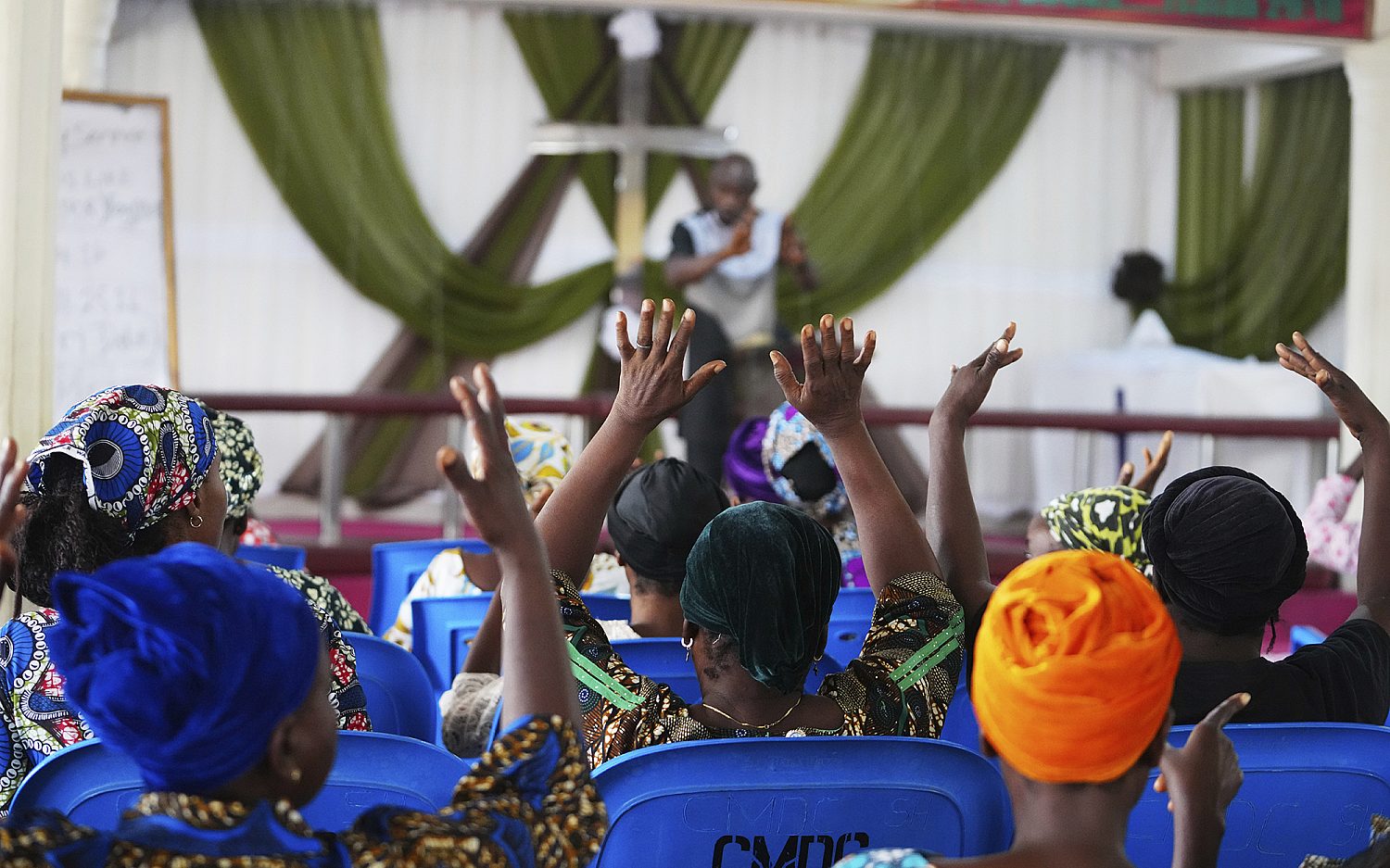Cairo confrontation
A dozen are dead and hundreds are wounded in the latest attack on Egypt's Copts
A weekend attack in Egypt on two Christian churches plus surrounding homes and businesses has killed at least 12 and wounded more than 200, according to eyewitnesses. Attackers also burned one of the churches, the Virgin Mary Church, leaving most of its five stories gutted.
The attacks took place May 7 in a northern district of Cairo once nicknamed "the Islamic Republic of Imbaba." Witnesses said that Salafist extremists, many of them from outside the city carried out the attacks, and some Salafist leaders acknowledged involvement.
"We don't talk-the church screams for itself," the head priest of the Virgin Mary Church, Mittias Illas, told Compass Direct News. "The church has five floors, and there is no space where the fire didn't reach. The floors, the ceiling, the pillars, the church box, the chairs, the icons, all of it-everything was burned. Just give me one reason for all that. There is no reason for all that, nothing."
The violence broke out as reports began circulating via the internet that a woman named Abeer Talaat, an alleged convert from Christianity to Islam, was being held against her will in one of the churches. Mobs descended on Imbaba, a poor neighborhood on the northern outskirts of Cairo, last Saturday. By evening swelling crowds of Muslims marched Imbaba's streets, chanting Islamic slogans and shouting Osama bin Laden's name, according to a victim of the violence who spoke to Compass Direct.
At St. Mina, a Coptic church, men dragged pews and other furniture out of the building and built barricades on the streets to block the mob from entering. Clergy from St. Mina did invite a group of Islamic imams into the church building to search for Talaat. The imams told the Muslim gathering that the woman was not in the building, but the crowd did not disperse. By 8:30 p.m. the Muslims began attacking the men with knives and hurling Molotov cocktails. There were also reports that the some in the crowd were armed with assault rifles.
While eyewitnesses maintain that the Coptic men had no more than sticks and rocks to defend themselves, numerous media outlets, and members of the Egyptian Army who later intervened, said that the Copts also carried weapons. The mob later attacked in Imbaba Coptic-owned businesses, including a crowded café and apartments adjacent to the church, where numerous residents were killed.
This week Talaat, the woman allegedly at the heart of it all, gave an interview to al-Ahram, a Cairo-based English language weekly, saying she was at a residence in Imbaba at the time of the attacks but claiming she had been jailed at her family's request in a monastery in Upper Egypt where Coptic Christians are most prevalent.
The arson attack was one of numerous recent explosive attacks on Coptic churches in Egypt-including a church torched in Cairo in March, and the New Year's attack on a Coptic Church in Alexandria, where a bomb killed 23.
Egypt, with more than 10 million mostly Coptic Christians (the oldest church in Egypt) and more than 3 million evangelicals, has the largest Christian population in the Middle East. But it is increasingly the target of Islamic militants known as Salafists.
The Salafists, a Wahhabi-based sect from Saudi Arabia similar in ideology to Osama bin Laden, believe that most contemporary Muslims follow a corrupted version of Islam and should adhere to practices from the first three generations of Islam called the Salaf. Male followers grow full beards and women wear full-face veils. Former Egyptian President Hosni Mubarak denounced Salafists, who often went against the teaching of the state-run Al-Azhar University. But unlike the Muslim Brotherhood, which always stood in opposition to Mubarak, Salafists have been reluctant to form political parties and engage in public life. That's changing in the post-Mubarak era.
Observers believe that Salafists, along with the Muslim Brotherhood, could play a significant role in the formation of Egypt's new government. Amr Moussa, the outgoing head of the Arab League and the lead candidate in Egypt's presidential race, told The Wall Street Journal in an interview published May 6 that he believes September elections will usher in a legislature led by a bloc of Islamists with the Brotherhood at the forefront. Moussa, 74, has headed the Arab League since 2001 and is scheduled to step down May 15.
Those developments will mean even less freedom and protection for the country's Christians. In April the U.S. Commission for International Religious Freedom named Egypt its latest "country of particular concern," a designation that opens the door for possible U.S. sanctions, even against an ally. The commission said the Egyptian government "engaged in and tolerated religious freedom violations before and after President Hosni Mubarak stepped down."
Emad Mikhail, president of the evangelical Alexandria School of Theology, believes there is a growing national consensus that the Salafists are dangerous. "The situation in Egypt since the ouster of Mubarak is very confused," he said. "A majority kept silent for so long is suddenly speaking out."
An actual newsletter worth subscribing to instead of just a collection of links. —Adam
Sign up to receive The Sift email newsletter each weekday morning for the latest headlines from WORLD’s breaking news team.





Please wait while we load the latest comments...
Comments
Please register, subscribe, or log in to comment on this article.